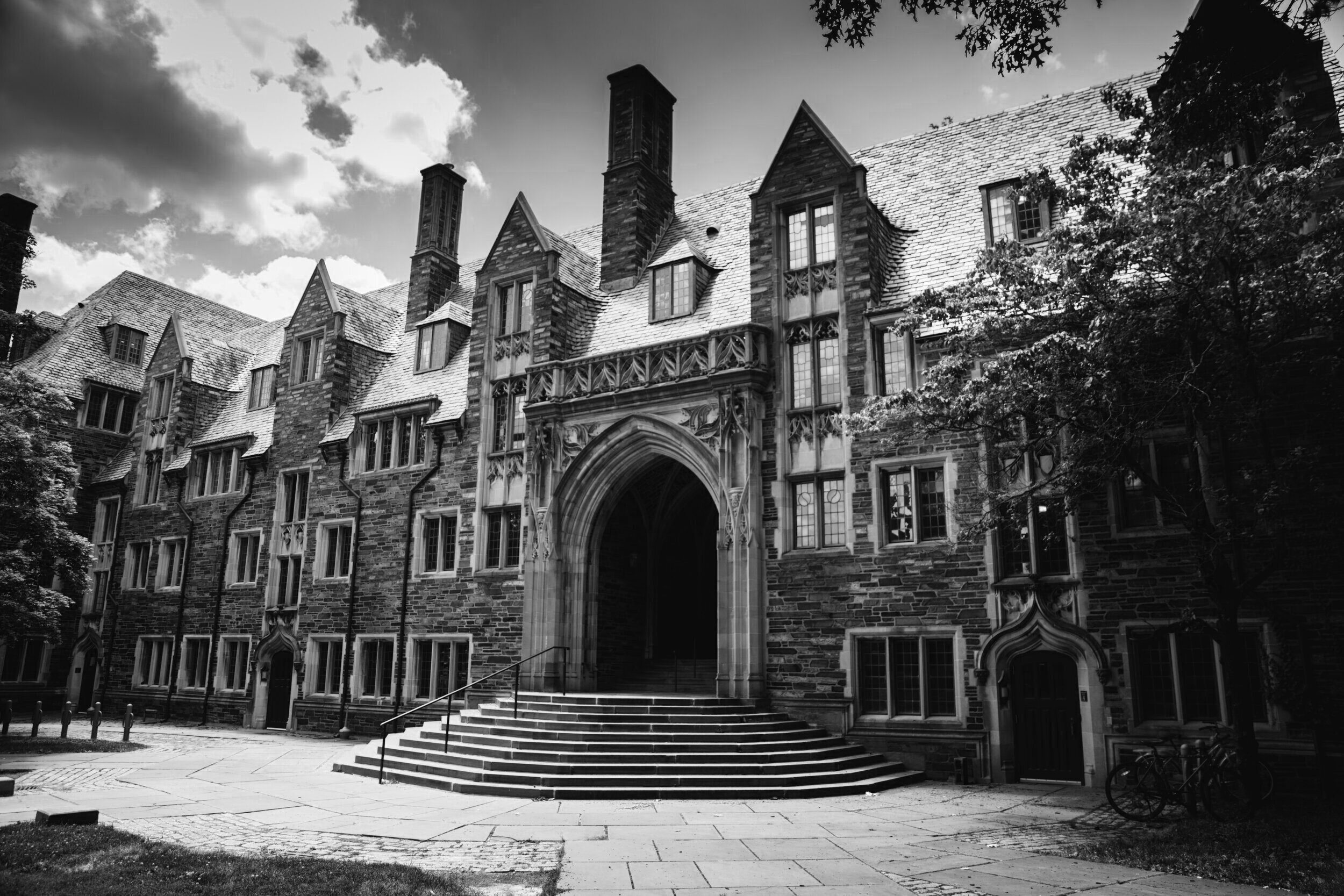History and Hungary: George Soros and his university philanthropy
It must have been a bitter pill for George Soros to swallow when in 2018 the billionaire financier felt compelled to move the European headquarters of his Open Society Foundation from Budapest to Berlin. Six months later, the Central European University which he founded in 1991 and which is a significant beneficiary of his Foundation’s giving announced it was being forced by the Hungarian government - in a move deemed illegal by the European Court of Justice - to re-locate from Budapest to Vienna.
The context to those decisions was the increasing antagonism felt towards both George Soros and the Open Society Foundations that he established to serve as a conduit for his global philanthropic endeavours. Soros has long been the scourge of the right who view his philanthropy as using wealth to advance a left wing agenda. To his admirers, his philanthropy provides precious support to vulnerable institutions and marginalized causes and communities. Whatever your philosophical view towards Soros, there can be little argument that universities are a significant beneficiary of his philanthropy.
History and Hungary
Apart from being a Hungarian by birth, Soros’ journey into philanthropy was shaped in very large part by the Cold War and Hungary was an early focus of Soros’ philanthropy. During the 1980s the billionaire financier funded academic exchanges in communist Eastern Europe to study in the West. He began to formalize his philanthropic funding by opening a foundation in Hungary in 1984, which would eventually lead to the establishment of the Open Society Foundations network.
The purpose was to expand people’s access to information in Eastern Europe and Russia—including by distributing photocopiers to independent groups to break the Communist Party’s grip on information. It is reported his strategy to import hundreds of Xerox photocopiers sped up the ability of dissident groups to communicate.
Ironically, one of the beneficiaries of Soros’ philanthropy during the 1980s was Viktor Orbán who, as a student activist and founder of Fidesz – the dominant political party in Hungary today – received a scholarship to study civil society in Oxford and received funding for his fledgling political party. Today, the Hungarian Prime Minister is a vociferous critic of Soros.
With the fall of the Berlin Wall, Soros went on to establish foundations across Central and Eastern Europe with the purpose of fostering and enabling civil society.
Universities were notable beneficiaries and the Central European University (CEU) which was reputed to have received an endowment of $880m by George Soros at the time of its foundation making it then the best funded university in Europe. The establishment of the CEU was the crowning achievement of Soros’ philanthropic endeavours. The Soros vision for the University was to recruit professors and students from around the world to build a unique institution, one that would train future generations of scholars, professionals, politicians, and civil society leaders to contribute to building open and democratic societies that respect human rights and adhere to the rule of law.
And becoming of a university with deep pockets, the CEU has attracted some of the finest academics, with rectors including the philosopher Yehuda Elkana, legal scholar and diplomat John Shattuck and the incumbent Canadian politician and historian Michael Ignatieff. Until its forced relocation to Austria, the CEU was widely considered one of the finest graduate universities in Hungary, becoming the training ground for politicians, diplomats and businessmen.
While the focus of George Soros’ efforts is to promote freedom of speech, good governance and democracy, higher education is an important conduit for the Open Society Foundations.
In fact, George Soros’ journey into university philanthropy is said to have started in 1979, when he provided funding for scholarships for black students at the University of Cape Town in South Africa.
He recalls that “South Africa was a closed society with all the institutions of a first world country, but they were off limits to the majority of the population on racial grounds. Where could I find a better opportunity for opening up a closed society?”
In 2018, George Soros gifted the Open Society Foundations an $18bn endowment which is thought to make it the world's third largest philanthropic fund, after the Bill and Melinda Gates Foundation and the United Kingdom's Wellcome Trust. Open Society is considered the largest private funder of groups and projects working for justice, good governance, democracy and human rights and it claims to be operating in more than 120 countries.
What comprises the Open Society Foundations network?
At UniversityPhilanthropy.com we wanted to understand which institutions George Soros’ network of foundations was funding, and where are they. What we hadn’t appreciated is just how complex an undertaking that would be.
George Soros' network of Open Society foundations appear impenetrable. Said to be operating in over 120 countries, there are different foundations in different geographies. Trying to get an authoritative overview on its university funding is, we conclude, almost impossible.
The challenge is the highly devolved and disparate character of Soros’s philanthropic efforts. We know that the Open Society Foundations – operating globally – is the keystone of Soros’ philanthropic activities. In 2018 2018, the Foundations reported revenues of $376 million and expenditures of $215 million (including grants of $20.3 million). OSF is the 2nd-largest of Soros’ foundations, with 2018 assets of $3.7 billion.
The Foundation to Promote Open Society is the largest of Soros’ foundations by endowments. According to 2018 tax returns it had assets of $10.8 billion, revenues of $1.3 billion, and expenditures of $498 million. As such it is the largest grant-making organization in the Soros network. The Open Society Foundations website is home to a grants database, but that only provides information for funding from 2016-18, and by its own admission does not record all awards.
Soros’ sons Jonathan and Alex are reported to have founded their own foundations and there are a number of funds and entities bearing the Soros or Open Society labels that are operational including the Open Society Fund, the Open Society Institute Baltimore, Soros Economic Development Fund and the Soros Fund Charitable Foundation. So the full picture is less than clear.
University philanthropy by the Foundation to Promote Open Society
For our study of university funding, we looked at the US tax returns of the Foundation to Promote Open Society, as mentioned the largest grant-making foundation in the Soros network. The picture we are reporting then, is not a complete overview of Soros university philanthropy – but we think it’s the most comprehensive study of Open Society higher education funding to date.
According to our study, the Foundation for Open Society has disbursed over $184m in funding to 171 universities and higher education institutions in 51 countries overs the past 5 years. 8% of all Foundation giving in the past five years ($2.2bn) has gone to universities and higher education institutions.
According to Foundation tax returns from 2014-18, funding to universities has almost doubled from $32m in 2014, to $62m in 2018. The number of beneficiaries has jumped 46% from 65 in 2014 to 95 in 2018.
Open Society and US universities
It will come as no surprise that, in step with all the major US philanthropic foundations that fund higher education, US universities are the biggest beneficiaries receiving 72% of giving over the past five years.
Bard College is the biggest recipient of Soros university funding channeled through the Foundation. Between 2014-18 it received over $50m, a significant sum for a small liberal arts college. The support Soros affords Bard College – it announced in July 2020 it had received a further gift of $100m – speaks to the very unexpected character of Open Society’s university funding.
Well known, high profile universities such as Harvard ($20.4m), Columbia ($5.6m), New York ($5.3m) and Oxford ($4.5m) are among the top 10 recipients’ of the Foundation’s philanthropy following a predictable pattern of behaviour common among many of the big funders. But Soros’ philanthropy also has an eye for the more unusual. The biggest non-US beneficiary of Foundation – after the Central European University which received $14m – is the American University of Central Asia in Bishkek which received $8.5m. This makes Kyrgyzstan the second biggest non-US beneficiary country of Soros university philanthropy after the UK. In terms of grant amounts, UK universities received 6% of the Foundation’s funding while Kyrgyzstan received 5%.
Regionally, North American universities are the biggest recipient of Gates Foundation funding. 70 institutions received 75% of giving.
Open Society and European universities
European universities are the second biggest group of beneficiaries, receiving around 9% of university giving between 2014-18. 47 universities received over $17m. The UK is by far the biggest beneficiary with $11.7m disbursed to 25 UK universities. This again conforms to many patterns of US large foundations’ university philanthropy. The University of Oxford is the biggest beneficiary in the region followed by the London School of Economics ($2.3m) and the Geneva-based Graduate Institute of International and Development Studies ($2.2m). However, in the top 10 European universities which have benefitted from Open Society funding, there are some lesser known names in academia including the American University of Bulgaria, the University of East London and the University of Essex.
Open Society in Africa, Asia, AustralAsia and Latin America
Asian universities are the third biggest regional beneficiary, receiving 6% of Open Society university funding in the past five years. The American University of Central Asia in Bishkek which received $8.5m makes Kyrgyzstan the biggest Asian beneficiary country. Afghanistan was the next biggest country beneficiary receiving $1m shared between two universities.
Latin American universities were the fourth biggest regional beneficiaries of Open Society university giving. 20 Latin American universities received $7.6m in funding between 2014-18. Colombia was the biggest country beneficiary. It received $3.3m between six universities. Venezuela was next, with universities in that country receiving $2m.
African and Australasian universities are at the bottom of the university funding list. 16 African universities in six countries – Ethiopia, Ghana, Kenya, Malawi, South Africa and Tanzania – received between them $4.5m in funding over the past five reported years. The University of the Witwatersrand in South Africa was the biggest recipient receiving $1.1m while the University of the Western Cape, also in South Africa, was the second biggest recipient receiving $717k.
The University of Cape Town benefits relatively moderately from its long association with George Soros and his funding of scholarships in 1979 to that institution. It received $336k in awards in 2014 and 15. Only one Australasian university – the University of New South Wales – appears to have received funding from the Foundation for Open Society.
Who benefits from Open Society university philanthropy and why?
According to our analysis of giving by George Soros’ main grantmaking organisation, the percentage amount of funding going to universities has increased between 2014-18, and the number of university beneficiaries increased markedly.
In particular, funding of non-US universities has grown by over 100% in the five years included in this study. In 2014, 31 non-US universities received Foundation to Promote Open Society funding. By 2018 that number had leapt to 64.
What do they have in common? On the surface it is difficult to discern obvious patterns but there are a number of conclusions that we can draw.
First, and most obviously, the universities that receive Soros funding are doing so because they are delivering against the core values of the Open Society network. In other words, these are universities have programmes that align with the core themes of justice, freedom of information, democratic values and other activities that contribute to upholding a pluralist society.
Of course, the usual institutions with sophisticated operations for attracting high-end philanthropy feature in the Soros giving list. But they are joined by lesser known institutions in countries that rarely appear in our other studies. Universities in countries such as Afghanistan Bulgaria, Guatemala, Kyrgyzstan and Venezuela have all successfully appealed to the Open Society network of foundations and have secured significant amounts of funding. And what do they have in common? Many of these universities are operating in societies where, arguably, democracy and pluralism is fragile. In our view, this is to be applauded since it is often the case that in such countries where funds for universities are in short supply, international philanthropy can have a far bigger impact than say in the UK or US.
Second, many of the bigger beneficiaries of Open Society university philanthropy are, in one form or another, closely associated. One example is CIVICA, an alliance of eight European higher education institutions in the social sciences. The Central European University and the London School of Economics – both significant beneficiaries of Open Society funding make up one quarter of CIVICA.
Bard College, undoubtedly Open Society’s favoured higher education institution, has established a network of six partner institutions which include the Central European University, the American University of Central Asia and the European Humanities University, Vilnius – all of them beneficiaries of Soros funding.
Third, it appears that academics from recipient institutions are often highly networked into the Open Society Foundation. In other words, getting networked into the organisation can open doors to funding. Take the example of the Open Society Justice Initiative. Its board members include figures who either teach at or are closely associated with universities such as the American University in Washington, University of Nairobi, Fordham University, and Middlesex University. All these institutions are beneficiaries of funding from the Foundation to Promote Open Society.
Equally, a quick glance at the board membership of the Central European University reveals a web of highly connected relationships between representatives of institutions many of which are beneficiaries of Open Society funding. This starts at the top with the Chairman of the Board Leon Botstein who happens to be the Rector of guess where? You’ve guessed it, Bard College.
Open Society University Network
In January 2020, George Soros announced he was establishing the Open Society University Network (OSUN), pledging $1bn. He described it the “most important and enduring project of my life”, saying it was important to fund institutions that would help resist the drift towards authoritarianism. Leon Botstein, president of Bard College and Chair of the Board of CEU will serve as chancellor of OSUN.
The Network is up and running and at its core sit two institutions – Bard College and the CEU. The objective appears to be leveraging the resources of universities around the world to provide a common curricula for teaching and facilitating partnerships to explore and research global issues.
Institutions that are already members of the Network appear to be institutions that are already well integrated into Open Society’s existing university philanthropy. They include Arizona State University, the American University of Bulgaria, the American University of Central Asia, Birkbeck College, the European Humanities University and Graduate Institute of International and Development Studies.
If George Soros is true to his word, in all likelihood universities that join the Open Society University Network ultimately are likely to benefit from his philanthropy both in direct and indirect ways.
Conclusion
In summary, we have undertaken research that gives the best insight into the scale of Soros’ university philanthropy – but it is, by no means, the complete picture. Take the example of the CEU. According to our analysis of the Foundation to Promote Open Society’s tax returns it has donated over $14.4m to the university in the period 2014-18. But in undertaking research we also saw that the Open Society Foundations – another of Soros’ US-based funding bodies – has also donated to CEU. When we checked the Open Society Foundations own grants database - and which only records some but not necessarily all grants awarded by the Soros group - CEU is reported to have received $15.3m between 2016-18 alone. So the absolute figure that CEU has received from Open Society remains unclear – but we know it is significant.
George Soros may revel in his role as an icon of the left and the scourge of the right. However you view him, it has to be acknowledged Soros is a man who has and continues to make an enormous contribution through his philanthropy to universities the world over.
Top 10 beneficiaries of Foundation to Promote Open Society university funding (2014-18)
Bard College - $52.2m
Harvard University - $20.4m
Central European University - $14.4m
American University of Central Asia - $8.5m
Columbia University - $5.7m
New York University - $5.3m
University of Oxford - $4.5m
University of California, Los Angeles - $4.3m
American University of Washington - $3.5m
George Washington University - $3.4m



